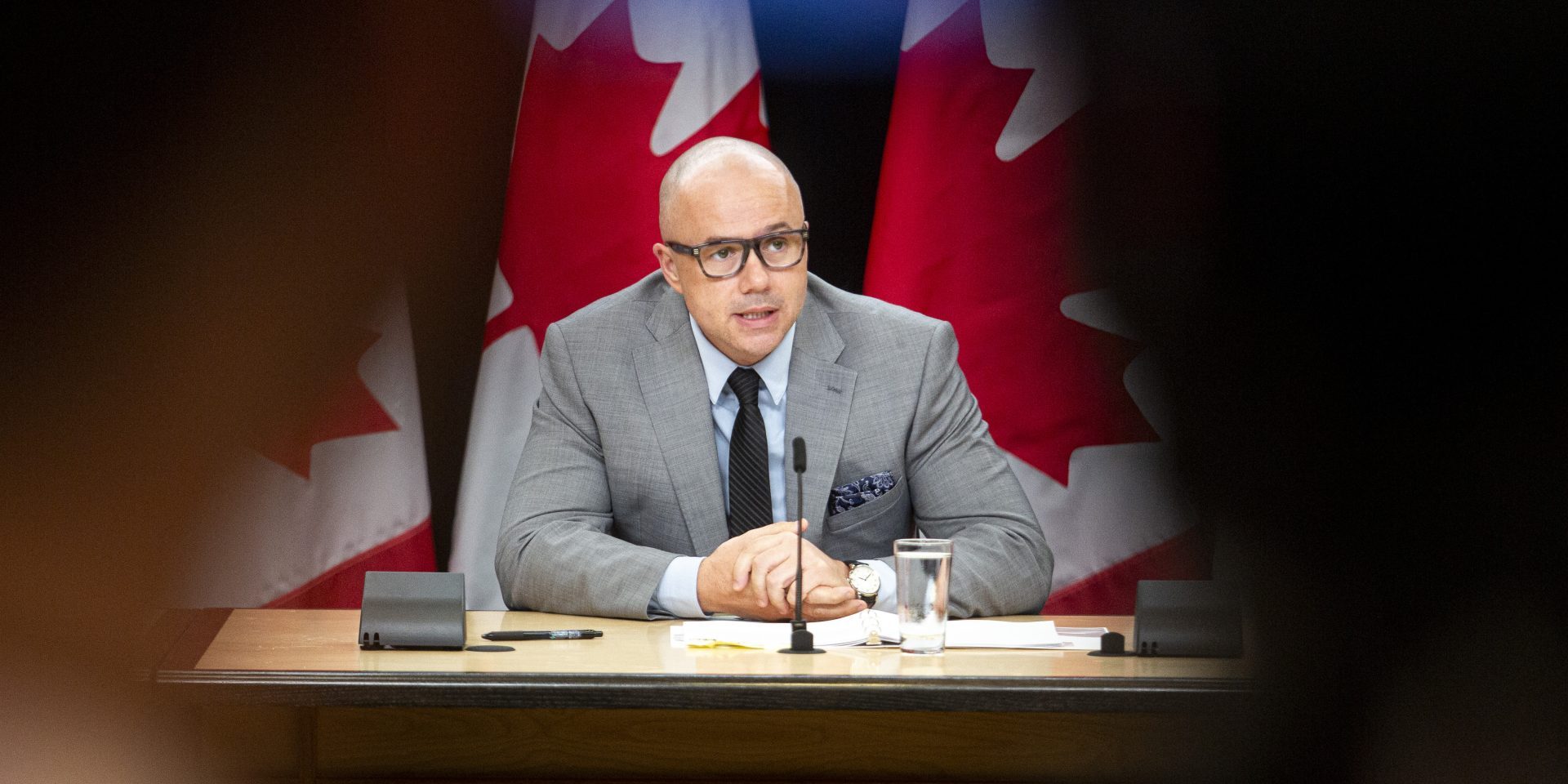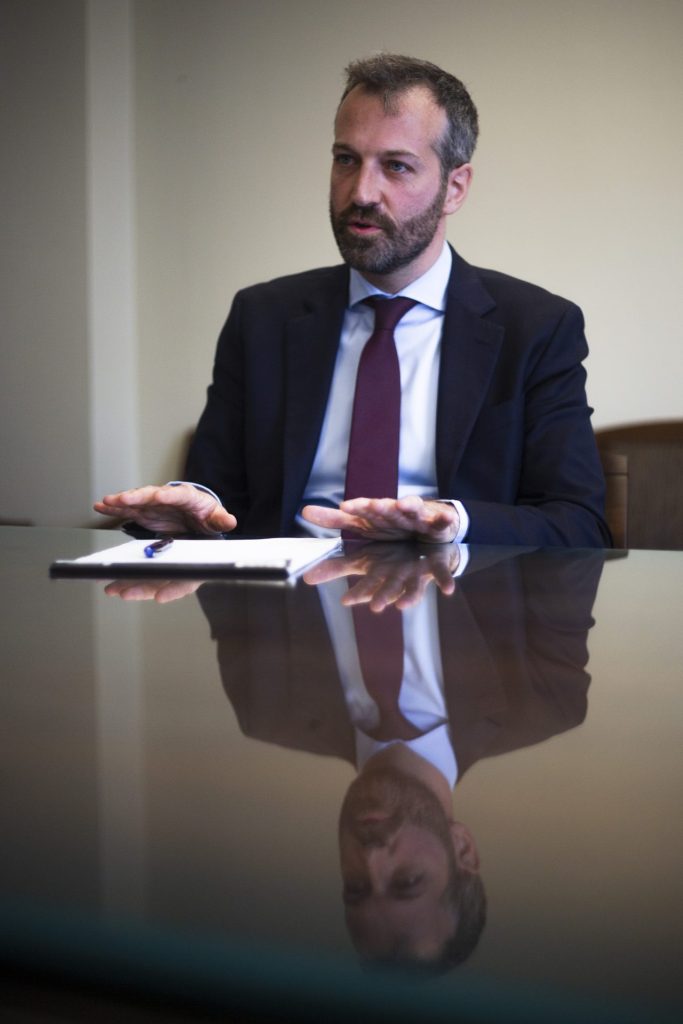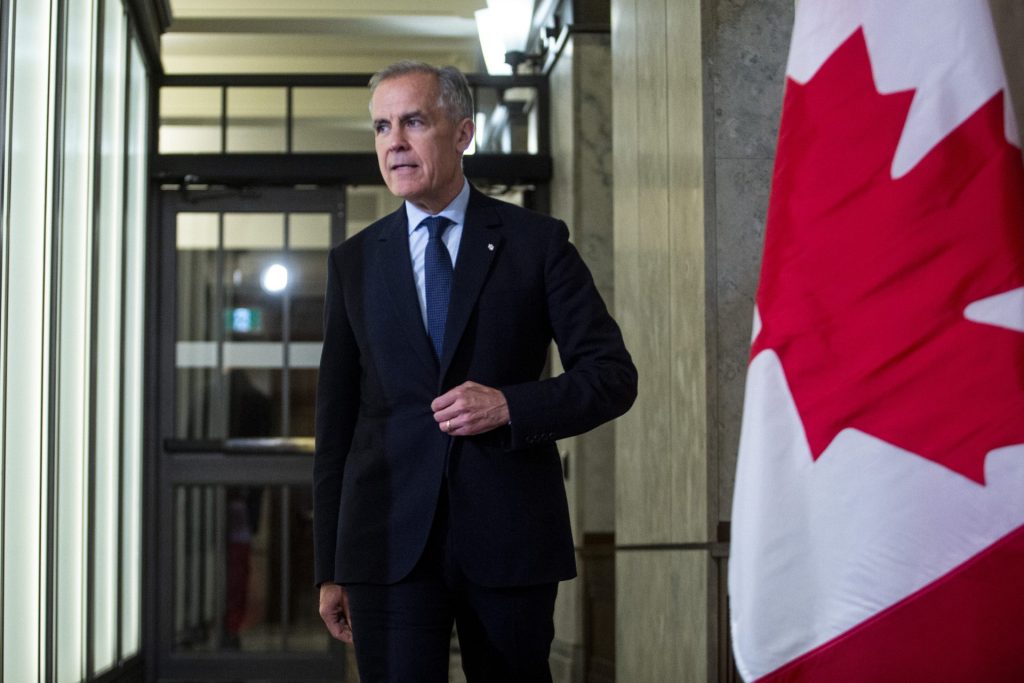PSPC using an AI bot named ‘Ava’ to help clear Phoenix pay system backlog

An artificial intelligence bot has been given the unenviable task of clearing up a hefty backlog of cases related to issues with the Phoenix pay system.
Speaking to reporters on June 23, Alex Benay, associate deputy minister of Public Services and Procurement Canada (PSPC), said an AI virtual agent, or “Ava,” has been trained by compensation advisers for the past year, and is now tasked with clearing 160,000 backlogged cases of issues with the beleaguered Phoenix pay system, under the supervision of humans.
“Over the past year, we also learned a lot, especially about where AI would deliver the most value, focusing on helping agents process high-value cases,” he said.
Right now, Ava will be resolving straightforward cases that Benay said are “a bit more simple than a four-year backlog case,” for example. Those will still be handled by humans, because the artificial intelligence machine isn’t yet trained to address difficult pay issues.
“So the complex stuff will be managed by the humans. The lighter touch stuff will be first passed by machines, reviewed by humans.”
As it stands now, nearly a decade after Phoenix was first rolled out, the overall queue of cases is at about 450,000. Benay said there are approximately 300,000 cases that are between one day and a year old, while the backlog of cases that are older than one year sits around 150,000.
The program, once billed as a cost-saver, has so far cost more than $5.1-billion, said Benay, speaking at a quarterly update to reporters about the progress the government has made on HR and pay matters.
He said PSPC has made “real progress” on the backlog of outstanding cases. With a team of 200 human employees, plus Ava, on the task, the backlog has been steadily decreasing quarter over quarter, he noted.
“We’ve been doing more automation,” he told reporters. “There’s different techniques that we’re applying, but all of that combined has helped to start bringing the curve down.”
The automation process involves “simple robot process automation,” as well as the AI bot, he said.
Benay said he hopes AI will process an additional 160,000 cases over the next 15 months, via either partial or full automation.

“The prime minister’s mandate challenges us to think differently, to work smarter and focus on outcomes that matter to Canadians. I would argue that’s exactly what we’ve been doing in the HR and pay transformation over the past 18 months,” he said.
Government Transformation and Public Works and Procurement Minister Joël Lightbound (Louis-Hébert, Que.) previously told The Hill Times he’s looking to tap into artificial intelligence to enhance government procurement and oversight.
“It’s looking at ways to empower our public service, to deliver better results, gain efficiency. That really is my focus right now,” he said in an interview on June 16. “The ultimate goal is better service for Canadians, a more efficient public service.”
Prime Minister Mark Carney (Nepean, Ont.) also made AI a pillar of his electoral platform. On the campaign trail, he announced $15,000 for workers in key sectors to learn how to use artificial intelligence. The Liberal platform also promised to invest $2.5-billion in digital infrastructure—like chips and data centres—through the next two fiscal years. And, once elected, Carney appointed rookie MP Evan Solomon (Toronto Centre, Ont.) to be the country’s first minister of AI and digital innovation.
Carney also announced a memorandum of understanding between the Canadian government and AI firm Cohere on June 15. The Canadian AI firm will “collaborate with the Canadian AI Safety Institute and develop their commitment to building cutting-edge data centres in Canada,” according to a readout from the Prime Minister’s Office. The announcement was made when U.K. Prime Minister Keir Starmer was in Ottawa, and the United Kingdom also signed its own memorandum of understanding with Cohere.

Dayforce ‘not another Phoenix’
Since confirming a new pay system, Dayforce, is a “viable option” to replace Phoenix as the Government of Canada’s pay system, Benay said PSPC has run 230 scenarios with an 88 per cent success rate.
“So this is not another Phoenix,” Benay said. “The work is being done at small scale and transparently, and we’re hoping that this is a smarter, more human centered transformation that will be built to last.”
Benay said Dayforce will be rolled out in parallel with the existing system to avoid a repeat of the “big bang” switch to Phoenix, that resulted in hundreds of thousands of federal public servants across the country seeing issues with their paycheques.
On June 11, Lightbound announced plans to move “forward to the final build and testing phase” with Dayforce following a “rigorous feasibility study.” The government is taking a “phased approach” to finalize Dayforce testing and “work with departments to confirm their readiness to onboard.” That press release outlined plans over the next two years to “progressively onboard,” first with two departments and a separate agency” to focus on “departmental readiness” before deploying the system.
Phoenix was supposed to centralize payroll administration federal employees, who number nearly 358,000. The IBM-made system was created in June 2011 through a competitive procurement process under the Conservative government. After the program was rolled out by the Liberal government in 2016, unions said the system was prematurely rushed, and since then, there have been hundreds of thousands of public servants being overpaid, underpaid, or not paid at all in some cases.
The 2024 budget earmarked $135-million to test a new HR and pay solution to replace Phoenix, and Benay said PSPC recently signed a contract amendment with Dayforce valued at approximately $173-million to cover the next 15-month phase of testing.
“At this point next year, we will be progressing to parallel testing of Dayorce versus our current HR and pay platform,” he said.
— with files from Irem Koca
The Hill Times






 LICENSING
LICENSING PODCAST
PODCAST ALERTS
ALERTS













